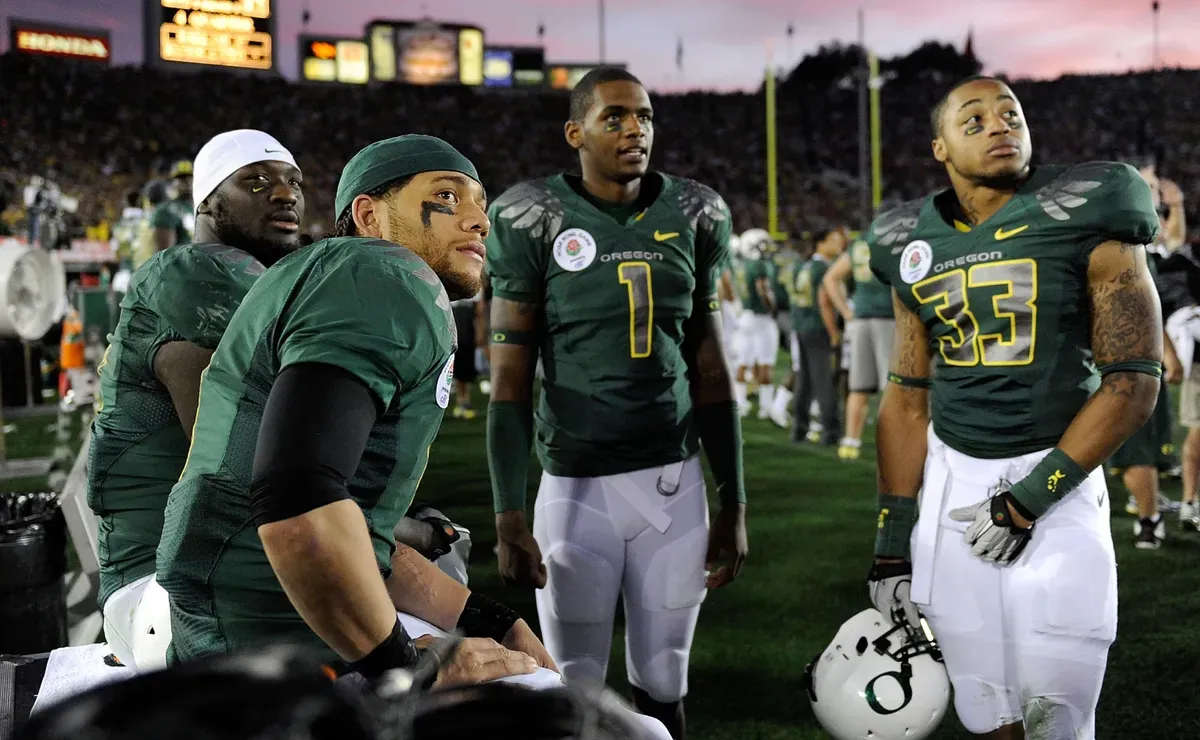The college football national championship is a sports Everest. While some teams climb to the summit, others dominate their eras with an undeniable talent that seemed destined for glory. They built powerful legacies.
Yet, for every champion, there are the near-misses. These teams, with their legendary players and unforgettable seasons, fell just short of the NCAA ultimate prize, leaving a legacy of what might have been.
This is a tribute to the uncrowned kings of the gridiron. Their legacy is etched not in a trophy, but in the collective memory of a fanbase and the enduring respect of their peers, a testament to a greatness that endures without a title.
West Virginia Mountaineers
Patrick White of the West Virginia Mountaineers in 2007. (Source: Kevin C. Cox/Getty Images)
The Mountaineers program, with its history of resilience and gritty play, has produced elite teams that came close to glory, but tragedy or an unexpected defeat always stood in their way. Their most notable case is the 2007 season.
Led by future NFL quarterback Pat White and dynamic running back Steve Slaton, West Virginia steamrolled through the Big East conference with an unstoppable, innovative option offense. With only one loss on their record, they positioned themselves as favorites to contend for the national title, just one game away from the final.
The story of that team, however, was marked by one of the most shocking upsets in college sports history: their loss to Pittsburgh in the final week of the season. Known as the “Kick to Glory“, the game saw a Panthers team with a 4-7 record emerge victorious, ruining West Virginia’s hopes of playing for the championship.
Virginia Tech Hokies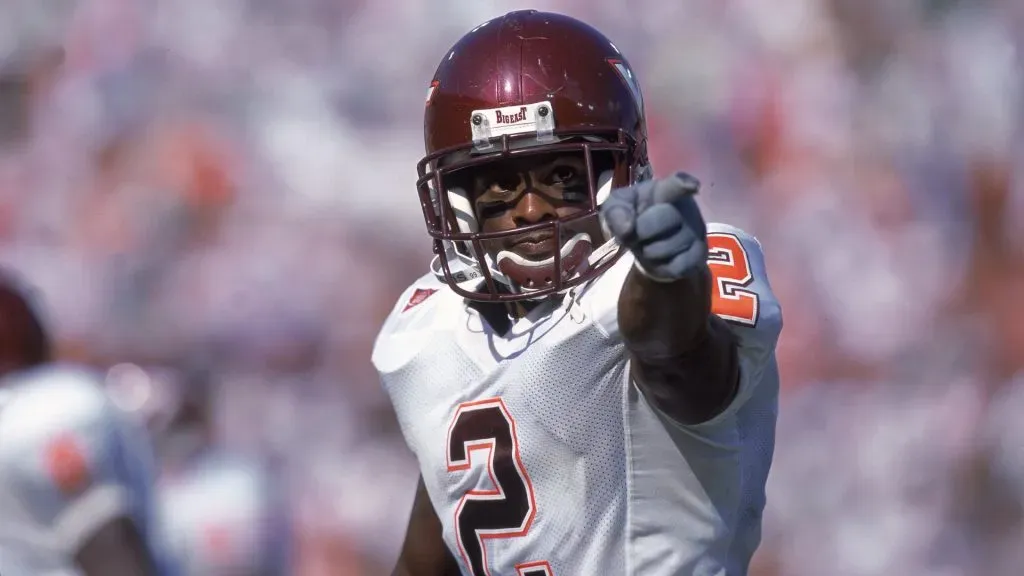
Ronyell Whitaker of the Virginia Tech Hokies in 2000. (Source: Craig Jones /Allsport)
The legacy of the Hokies, under the leadership of legendary coach Frank Beamer, is not measured in championships, but in an unwavering identity of suffocating defense and explosive special teams. In the late 1990s and early 2000s, the Hokies became a synonym for power, building a reputation as a terrifyingly effective defensive team, capable of changing the course of any game.
Their 1999 season was the pinnacle of this era, thanks in large part to the stellar performances of rookie quarterback Michael Vick. His speed and passing ability revolutionized the team’s offense, and the Hokies’ defense, known as the “Hokie Stone,” was practically impenetrable.
With an 11-0 record, they reached the Sugar Bowl to contend for the national title but faced the Florida State dynasty. Although Vick and company made a spectacular comeback, it was not enough to overcome the Seminoles, leaving the Hokies’ defense and their incredible season without the crown they so deserved.
Wisconsin Badgers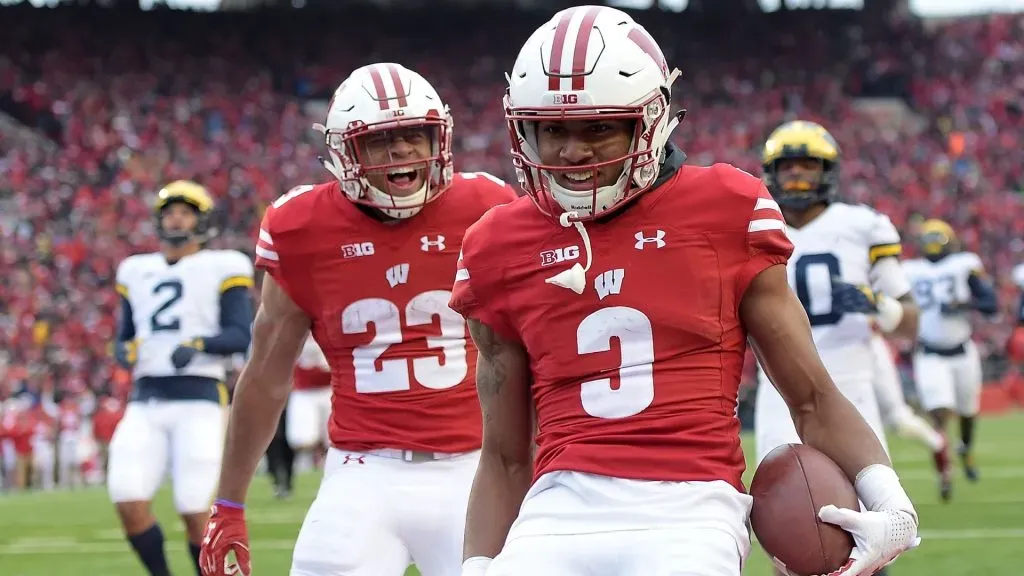
Wisconsin Badgers players in 2017. (Source: Stacy Revere/Getty Images)
The Badgers program has cultivated a reputation for physical power and an unwavering commitment to the ground game, a philosophy that has made them a constant contender, though they are often overlooked in national title conversations.
Their success is not based on flash but on hard work and an imposing offensive line that has paved the way for some of the best running backs in the history of the sport, such as Ron Dayne, Montee Ball and Jonathan Taylor.
Despite their dominance in the Big Ten, the team fell short in the pursuit of glory, often faltering in the most important games. The most painful example is that of their 2017 team. Led by an unstoppable Dayne, the team finished with a 12-0 record in the regular season, a perfect record that placed them one step away from the final.
However, their loss to Ohio State in the conference championship game knocked them out of the title race, solidifying their legacy as an “uncrowned” team that was great enough to dominate their league but not enough to triumph on the big national stage.
Navy Midshipmen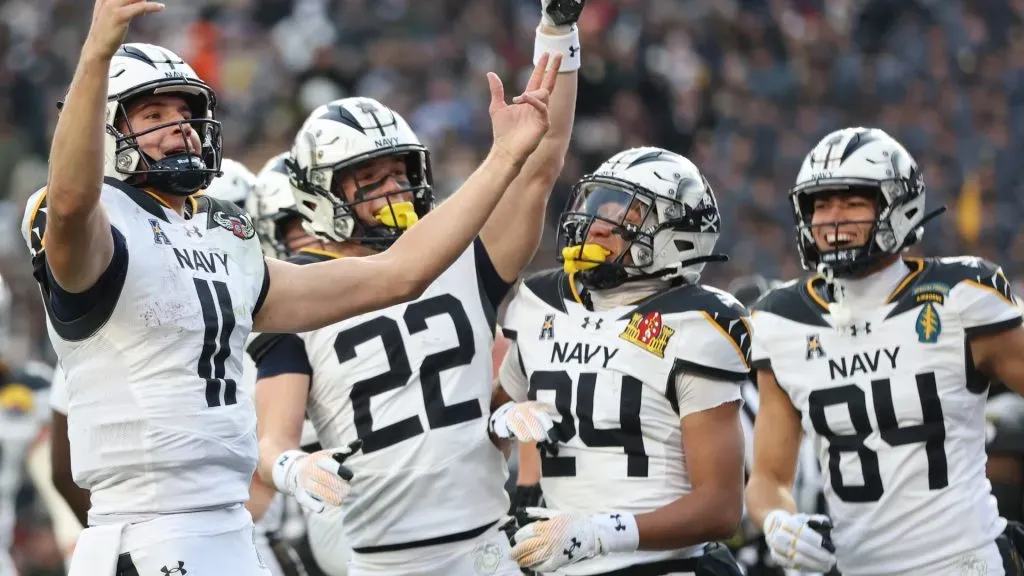
Navy Midshipmen players in 2024. (Source: Patrick Smith/Getty Images)
The Midshipmen program is a unique case of excellence intertwined with the nation’s history and patriotism. Rather than being defined by a single era or a coach, Navy’s greatness centers on iconic quarterback Roger Staubach, who is considered one of the best college players of all time. The 1960s were the pinnacle of the program, with the Navy team consistently competing against the best in the country.
The highlight of this era was the 1963 season. Led by Staubach, who won the Heisman Trophy that year, the Navy team was a true powerhouse, but at the time, the lack of a postseason playoff system left them out. The team finished in a respectable second place in the national rankings, but they were denied the opportunity to fight for the title.
While the lack of a national championship is a scar, their legacy goes beyond trophies. Navy’s greatness lies in the fact that its players are Marine officers who prioritize service to the country over sports, which makes their excellence even more remarkable.
Oregon Ducks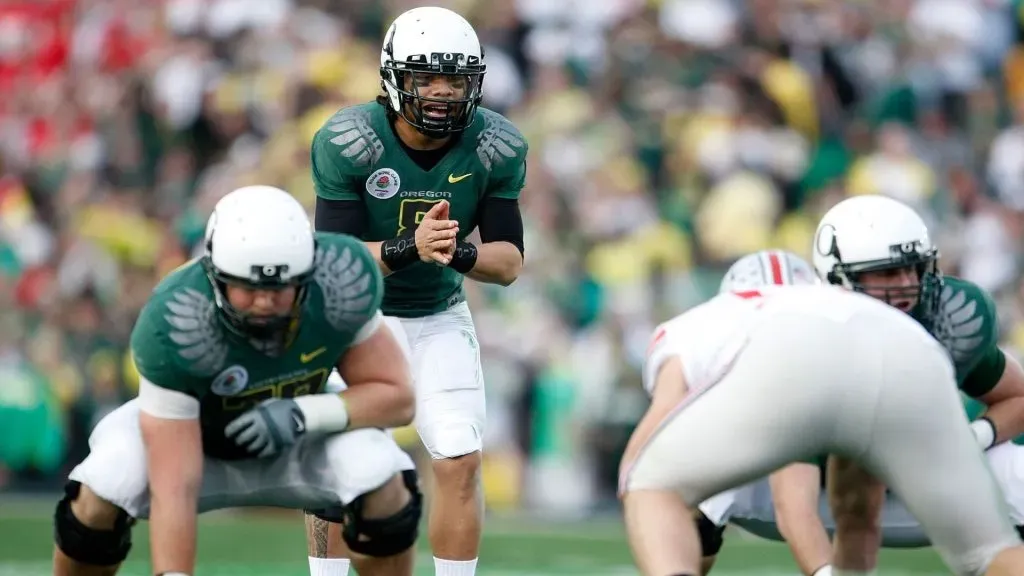
Jeremiah Masoli of the Oregon Ducks in 2010. (Source: Jeff Gross/Getty Images)
The Ducks program was defined by a revolution in playing style that changed the offensive landscape of college football forever. Led by an innovative coach and a creative design team, they became the epitome of speed, with a dizzying pace of play and dazzling uniforms that made them as unique as their offense. Throughout the 2010s, the Ducks became an offensive spectacle, but their style without defense was often their weak point.
Their best opportunity came in 2010 and 2014. The 2010 team was led by an unstoppable running back who set a devastating pace, while in 2014, quarterback Marcus Mariota, a Heisman Trophy winner, led an explosive offense that seemed invincible. However, in both national title games, the Ducks’ speed was not enough to overcome more balanced teams.
Although they never won the national championship, their legacy is undeniable. Oregon not only produced elite teams but also influenced an entire generation of teams with their frenetic pace and innovative approach, a legacy greater than any trophy.
